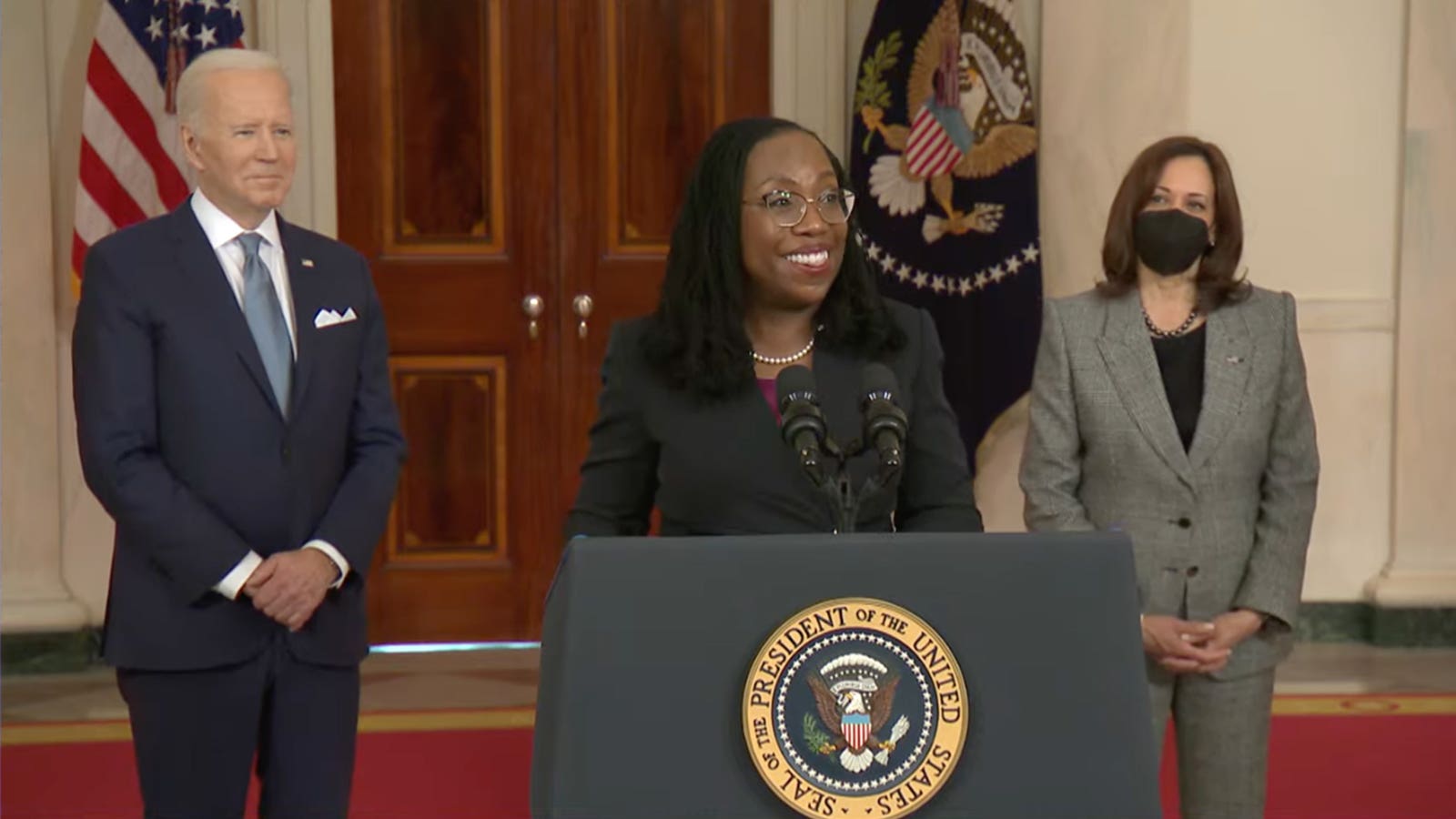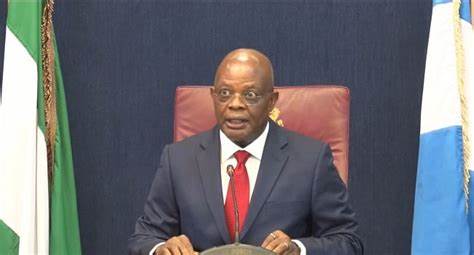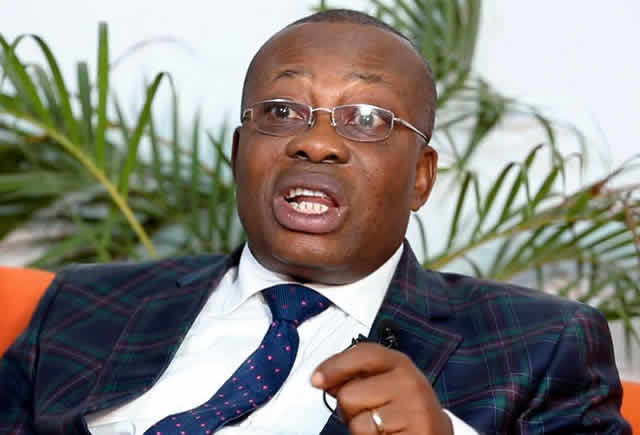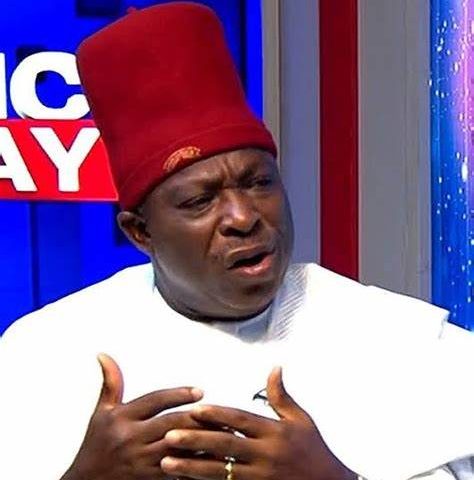Justice Ketanji Onyika Brown Jackson was nominated by President Joe Biden yesterday to the U.S. Supreme Court in fulfilment of a pledge he had made as a candidate that if he were elected, he would appoint a Black woman if the opportunity arose.
The opportunity came when U.S. Supreme Court Justice Stephen Breyer announced his retirement toward the end of January.
For a study of the excellent credentials Justice Jackson brings to the Supreme Court you have to look elsewhere for, like most people, I only took notice of her in 2019 when, as D.C. District Judge, she ordered Donald McGahn, former Trump White House counsel, to comply with a subpoena to appear before the House Judiciary committee. Her judgement ran to 118 pages but what the public and I ran away with was this,
Join our WhatsApp Channel“In reality, it is a core tenet of this Nation’s founding that the powers of a monarch must be split between the branches of the government to prevent tyranny … Stated simply, the primary takeaway from the past 250 years of recorded American history is that Presidents are not kings.”*
Here was a lady to watch, I thought, in these days of anomie when precious truth must not only be spoken courageously but delivered with panache. I imagined that Justice Jackson was speaking also to McGahn’s former boss, the emperor wannabe caught always in a state of undress.
Courage is a sterling quality missing in public service here and elsewhere and Justice Jackson, as the commenters describe her, seems a historic choice. But does the Supreme Court, which sometimes appears to me to be overrated, deserve Justice Jackson?
The Supreme Court is essentially an idea that a human institution can overcome inherent weaknesses and deliver impartial justice, worthy of a King Solomon, so to speak, without fear or favor. But the truth is that it had never approximated to any such thing.
In 2010, President Obama, coming dangerously close to sounding like Julia Roberts’ Darby Shaw in The Pelican Brief movie adaptation, used the bully pulpit of a State of the Union address, to reprove the Supreme Court for its decision in Citizens United. He felt that the Supreme Court had once too many, again, sided with power, money, and influence and had, therefore, opened the floodgates for special interests – read dark money – to influence elections.
Whether Obama was right, as Shaw was, is neither here nor there. What was problematic for me was that the decision was entirely predictable by close watchers of the court. The court of nine justices is nearly always split in unequal parts for conservatives (mostly appointed by Republican presidents) and liberals (mostly appointed by Democratic presidents). If court watchers can hazard the deciding voter gleaned from the body language of the justices during oral arguments, then they can predict which way the court will decide a case before it.
Citizens United ultimately turned on the conviction of ‘liberal’ justice Anthony Kennedy that corporations can be regarded as persons since they are responsible citizens who pay their taxes, and obey government laws and policies.
The rest of the justices voted to form – Chief Justice John Roberts, and Justices Antonin Scalia, Samuel Alito, and Clarence Thomas for the conservative wing, so to speak; and – Justices Stephen Breyer, Ruth Bader Ginsburg, John P. Stevens, and Sonia Sotomayor, voted for the liberal wing, so to speak.
That said, the opaque ways of the court is survivable if you are just a bystander without a dog in the fights before the justices. Still the case of Justice Clarence Thomas, nominated in 1991 by President George H.W. Bush (Republican) to replace the irreplaceable human rights activist, Thurgood Marshall, rankles as an example of the cruel role fate can play in the affairs of men. The personal, social, and political cost exacted by his confirmation hearing in the senate from Anita Hill, a law teacher, who accused Thomas of impropriety to the chairman of the Judiciary Committee, Senator Joe Biden, who presided over the hearings, and everyone in between, was incalculable.
Since then, the vote Thomas casts in court is so predicable that you can safely say that all his votes to the end of time have been accounted for. He rarely asks questions from the bench as attorneys made oral arguments (perhaps that would change for the pandemic has required the court to introduce remote sessions). You can say that he is incurious or that he knows which way he will vote regardless of the quality of legal arguments presented. Which ever way you slice it, it’s sad!
If Thomas were a patrician born to a life of white privilege, then that would have been excusable. But Thomas was the second Black justice appointed to the court and you would not know it from his decisions.
Thus regardless of the circumstances under which President Joe Biden has now redeemed his pledge or the larger context of the nomination, the point remains that fate is now trying to rectify its previous error.
The U.S. Supreme Court is an example to the world and it deserves persons in black robes who think deeper than the rest of us, whose consciences are more finely tuned, and who can rise up to the singular task of putting themselves in the shoes of the less privileged.
The nomination of Justice Ketanji Oyinka Brown Jackson to the Supreme Court is encouraging news, for she wears her erudition well. I hope she makes it to that musty chamber – leaving the door ajar for a minute for a blast of fresh air – wearing that inimitable smile she shares with Eddy Murphy.
IK Albert Ngene lives in Canada

















Follow Us